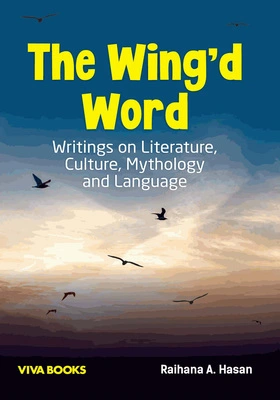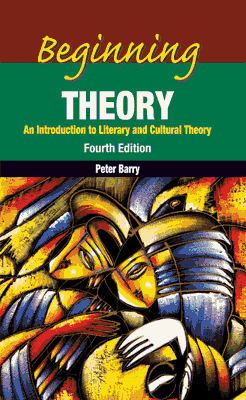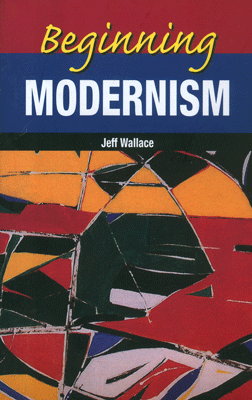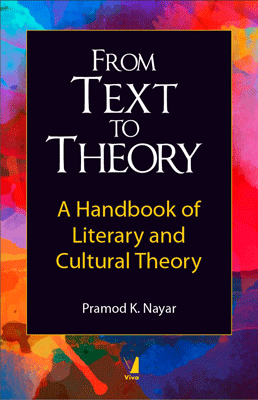The Tempest
The Tempest
Edited and with an introduction by Harold Bloom
₹535.50 ₹595.00 Save: ₹59.50 (10%)
Go to cart-
Out of Stock
ISBN: 9788130933955
Bind: Paperback
Year: 2016
Pages: 290
Size: 152 x 228 mm
Publisher: Facts On File Inc.
Published in India by: Viva Books
Exclusive Distributors: Viva Books
Sales Territory: India, Nepal, Pakistan, Bangladesh, Sri Lanka
Description:
For many, The Tempest constitutes Shakespeare's farewell to the stage. It seems to foreshadow a powerful movement of retreat, and it stands as one of the most evocative and moving explorations of human possibilities and limits. This invaluable new study guide to one of Shakespeare's greatest plays contains a selection of the finest criticism through the centuries on The Tempest, including commentaries by such important writers as John Dryden, Robert Browning, Northrop Frye and many others. Students will also benefit from the additional features included in this volume, such as an introduction by Harold Bloom, an accessible summary of the plot, an analysis of several key passages, a comprehensive list of characters, a biography of Shakespeare, essays discussing the main currents of criticism in each century since Shakespeare's time, and more.
Each volume in the Bloom's Shakespeare Through the Ages contains the finest criticism on a particular work from the Bard's oeuvre, selected under the guidance of renowned Shakespearean scholar, Harold Bloom Intended for students just beginning their exploration of Shakespeare, these invaluable study guides present the best of Shakespeare criticism, from the 17th century to today In the process, each volume also charts the flow over time of critical discussion of a particular work.
This essential set is unique not only in the range of commentary it provides on each of Shakespeare's greatest works, but also in its emphasis on the greatest critics in our literary tradition — including such critics as John Dryden in the 17th century, Samuel Johnson in the 18th century, William Hazlitt and Samuel Taylor Coleridge in the 19th century, A.C. Bradley and William Empson in the 20th century, and many more Some of the pieces included are full—length essays; others are excerpts designed to present a key point.
Target Audience:
Students and academics of English literature.
Contents:
Series Introduction • Introduction by Harold Bloom • Biography of William Shakespeare • Summary of The Tempest • Key Passages in The Tempest • List of Characters in The Tempest
CRITICISM THROUGH THE AGES
The Tempest in the Seventeenth Century
1580—Michel de Montaigne. “Of Cannibals,” from The Essays of Michel de Montainge • 1667-1668—Samuel Pepys. From The Diary of Samuel Pepys • 1669—John Dryden. From the Preface to The Tempest, or The Enchanted Island • 1669—John Dryden. From the Prologue to The Tempest, or The Enchanted Island • 1669—John Dryden and William Davenant. From The Tempest, or The Enchanted Island • 1679—John Dryden. From the Preface to Troilus and Cressida
The Tempest in the Eighteenth Century
1709—Nicolas Rowe. From Some Account of the Lift of Mr. William Shakespear • 1710—Charles Gildon. From “Remarks on the Plays of Shakespear,” in The Works of Mr. William Shakespear • 1733—Lewis Theobald. From The Works of Shakespeare, Collated with the Oldest Copies, and Corrected, with Notes, Exemplary and Critical • 1753-1754—Joseph Warton. “Observations on The Tempest of Shakespeare” and “Observations on The Tempest Concluded,” from The Adventurer • 1765—Samuel Johnson. From The Works of Mr.William Shakespear • 1780—Edward Capell. From Notes and Various Readings to Shakespeare
The Tempest in the Nineteenth Century
1809—August Wilhelm Schlegel. From Lectures on Dramatic Art and Literature • 1811-1812—Samuel Taylor Coleridge. “Lecture IX,” from The Lectures of 1811-1812 • 1817—William Hazlitt. “The Tempest,” from Characters of Shakespear's Plays • 1822—Charles Lamb. From “On the Tragedies of Shakespeare; with Reference to Their Fitness for Stage-Representation” • 1832—Anna Brownell Jameson. “On Miranda,” from Shakespeare's Heroines: Characteristics of Women, Moral, Poetical, and Historical • 1857—[unsigned]. Review of The Tempest, from The Athenaeum • 1864—Robert Browning. From “Caliban upon Setebos; or, Natural Theology in the Island” • 1872—John Ruskin. From Munera Pulveris: Six Essays on the Elements of Political Economy • 1875—Edward Dowden. From Shakspere: A Critical Study of His Mind and Art • 1880—A.C. Swinburne. From A Study of Shakespeare • 1897—George Bernard Shaw. “Shakespear and Mr. Barrie,” from The Saturday Review
The Tempest in the Twentieth Century
1907—Henry James. “Introduction to The Tempest” • 1938—E. M. W. Tillyard. “The Tragic Pattern: The Tempest,” from Shakespeare's Last Plays • 1939—Mark Van Doren. “The Tempest,” from Shakespeare • 1944—W. H. Auden. From “The Sea and the Mirror: A Commentary on Shakespeare's The Tempest • 1947—G. Wilson Knight. “The Shakespearian Superman: A Study of The Tempest," from The Crown of Life • 1949—Derek Traversi; From “The Tempest,” in Scrutiny • 1951—Harold C. Goddard. ”The Tempest,” from The Meaning of Shakespeare • 1959—Northrop Frye. Introduction to The Tempest • 1964—William Empson. From “Hunt the Symbol,” in Essays on Shakespeare • 1972—Leslie A. Fiedler. “The New World Savage as Stranger,” from The Stranger in Shakespeare • 1987-Harold Bloom. “Introduction,” from The Tempest (Bloom's Modern Critical Interpretations) • 1989—Meredith Anne Skura. “The Case of Colonialism in The Tempest," from Shakespeare Quarterly • 1992—Harold Bloom. “Introduction,” from Caliban (Bloom's Major Literary Characters)
The Tempest in the Twenty-first Century
2001—Tom McAlindon. “The Discourse of Prayer in The Tempest, • from Studies in English Literature 1500-1900
Bibliography • Acknowledgments • Index
About the Series Editor:
Harold Bloom is Sterling Professor of the Humanities at Yale University and the author of more than 30 books, including Shelley's Mythmaking (1959), Blake's Apocalypse (1963), Yeats (1970), The Anxiety of Influence (1973), A Map of Misreading (1975), Kabbalah and Criticism (1975), Agon: Toward a Theory of Revisionism (1982), The American Religion (1992), The Western Canon (1994), Shakespeare: The Invention of the Human (1998), How to Read and Why (2000), Hamlet: Poem Unlimited (2003), Where Shall Wisdom Be Found” (2004), and Jesus and Yahweh: The Names Divine (2005). In 1999, Professor Bloom received the American Academy of Arts and Letters” Gold Medal for Criticism.







